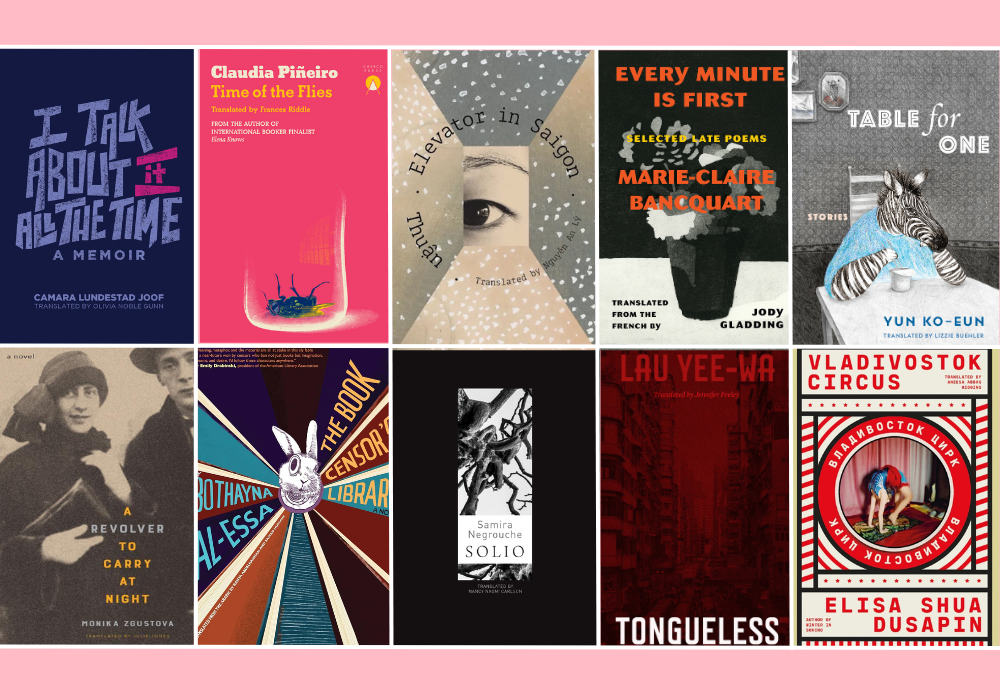The 2020 Words Without Borders and Academy of American Poetry translation contest was a delight to adjudicate. It was an Hunahpúan effort to choose only four poems from this extraordinarily strong pool of poems. However, four poems particularly resonated with me and ultimately made a decision attainable. My choices are “Birds In Flight, 1965” from Tagalog/Philippines, “Learning Late Letters” from Vietnamese/Vietnam, “Pegasus Autopsy” from Ecuador/Spanish, and “Trial Run” from Chinese/China.
The winning poems and their dates of publication are:
“Learning Late Letters” by Nguyễn Hoàng Quyên, translated by the author—September 12, 2020
Judge’s citation: “’Learning Late Letters’ blends and disforms sampled lyrics from Vietnamese-French writer Linda Lê and Vietnamese-Vietnamese writer Trần Dần. The juxtaposition of the former gaining recognition while writing outside Vietnam and the latter’s largely posthumously praised writing from within Vietnam, created for me a triangulated experience of diaspora, particularly with the poet’s own voice indecipherably connected to the two already melded voices. What is literature but us writing with our ancestors? And is not history but an adoption of ancestral perceptions? This epistolary poem eruditely juggles historical and literary complexities while also maintaining an exquisitely bedecked language. And like culture, it cyclically tumbles ideas about the frequency of the number 36, about death, about speaking, over and over changing them as we experience each line.”
“Pegasus Autopsy” by Julio Pazos Barrera, translated from Ecuadorian Spanish by Bryan Mendoza—September 19, 2020
Judge’s citation: “’Pegasus Autopsy’ is a clinical precision of a poem. The wonder hum of fluorescent light fixtures can be felt in each sparce line. In this wholly modern poem, myth perishes in the cathedral of modern science, the hospital. The only simile is an anachronistic mode of travel, sailing, where it too, perishes after having suffered a shipwreck. Everywhere here the old falls to the new. This poem is as tragic as it is beautiful, and every word feels purposeful. In the culmination of the poem, after the lifeless body of Pegasus has been inspected, drained of any usefulness to the modern, utilitarian obsessed world, its wings, the physical symbol of its transcendence, are to be aggregated into a landfill, the modern monument to mystery, which is to say it is “including the wings” with our other secrets. Knowledge and beauty are commodified. Accessing and ultimately discarding is the process of this world’s growth to this poem. Show me the lie.”
“Trial Run” by Yau Ching, translated from Chinese by Chenxin Jiang—September 26, 2020
Judge’s citation: “‘Trial Run’ is a brilliant poem. Despite the “puzzle” of the poem, it can be returned to again and again. In the white space of the poem resides our fears about mortality, playing out the mind’s tireless effort to occlude temporality. It is a shroud of absence. The poem slightly adjusts and comments, culminating with a playfulness that calls back the title, Trial Run, which in itself comments on life. If sleeping really is the practice for eternity, maybe death is the sad championship of the living. We train to die. In this poem, just add death.”
“Birds in Flight, 1965” by Enrique Villasis, translated from Filipino by Bernard Capinpin—October 3, 2020
Judge’s citation: “‘Birds In Flight, 1965’ enters readers in a moment of time that emblemizes a natural phenomenon, that of birds flying together, as metaphor for not exactly transcendence (it’s more disseminated than an epiphanic acme), but as the Post-Modern expression of cohesive simultaneity. Meaning, the speaker experiences via the birds flying separately yet concordantly an immanence and a transcendence, a growth and a regression, a lightness and a density, an innocence and a wisdom. This aspect of the poem is quite Blakean, in its truest sense of camaraderie, as in Yin-Yang, not focusing on differences but on intersectionality, which is so beautifully expressed through the chick nesting in a translucent eggshell or the sole (soul’s) curtsy to the mimosa.”










